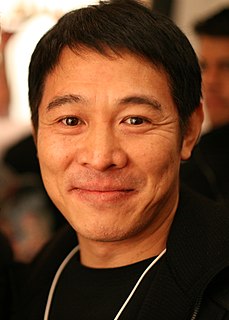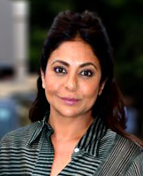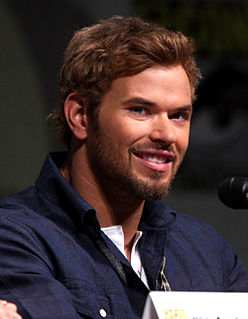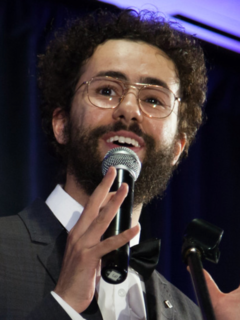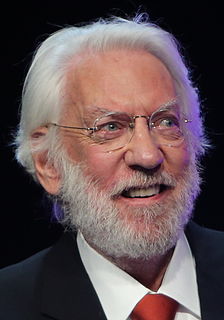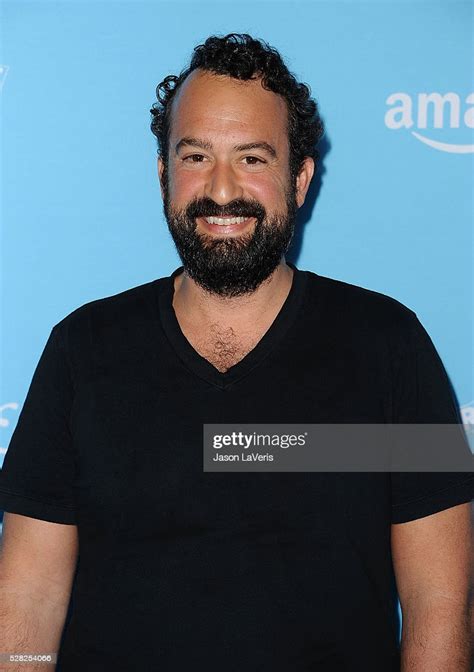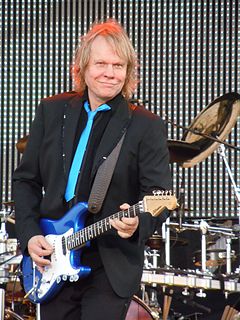A Quote by Jennifer Beals
It became very clear to the director that it would be foolish not to use our friendship. I had tried to talk to him about it because all the relationships in the film are so, not negative, but antagonistic. There's not a lot of love going around.
Related Quotes
I love John F. Kennedy. My mother had been a worker on his campaign and adored him. I was just a kid when he was around. I did a lot of preparation, a lot of research. I can't do him... I sort of get a slight Boston accent, and I tried to get his rhythm. My only fear was that I was too old to play him, because I was much older than he was when he died, so I was concerned about that. But it was one of those, "Oh what the hell, I'm doing this. It's a great part, and I'm going for it."
The lyrics just come out, and I don't know where from. I'm an incredible failure in relationships. I think there's a romantic ideal that I'm aspiring for. I don't know. The lyrics are always about unsuccessful relationships. They're not all about the love between a man and a woman. It's about friendship and family. Deep down there's a lot of talk about general existence.
Film’s thought of as a director’s medium because the director creates the end product that appears on the screen. It’s that stupid auteur theory again, that the director is the author of the film. But what does the director shoot-the telephone book? Writers became much more important when sound came in, but they’ve had to put up a valiant fight to get the credit they deserve.
Because love is the great commandment, it ought to be at the center of all and everything we do in our own family, in our Church callings, and in our livelihood. Love is the healing balm that repairs rifts in personal and family relationships. It is the bond that unites families, communities, and nations. Love is the power that initiates friendship, tolerance, civility, and respect. It is the source that overcomes divisiveness and hate. Love is the fire that warms our lives with unparalleled joy and divine hope. Love should be our walk and our talk.
Bill [Condon] is such a great actor's director. He cares about what you're thinking. And, he's very open. Even though he was pressed for time, and he was doing two movies at once, and all this stuff was happening around him, he would still take time to sit there and talk to you about your scene and your character and what you were going through. That was really a treat.
We talk a lot about our identities, and we talk a lot about working to clear misconceptions about those identities. But it'd be really cool to see someone like myself not even have to talk about being Muslim or Egyptian, because it's just understood. We can all just be weird and not have to explain everything.
I thought, "Oh, my god, that's what happens every time I talk with a journalist in the middle of shooting and I talk about my character. I describe him, I objectify him, and I kill him." So, I've never spoken with a journalist in the middle of a film. I don't do the EPK until the very end of a film. I can't talk about Kiefer's process, but what he brings to the table is beautiful.
I really became aware of the fact that, oh yeah, whereas a lot of other shows are sort of cynical or jaded or just sort of coming from that sort of energy, our show is very, very about these love-based relationships. It really comes out, a lot of times, in a sweet way. And I think people find that refreshing about our show. That's one of the things I definitely picked up on.
Before writing a single note of music, and even before the spotting session, I find it best to sit down with the director and just listen to him or her talk about the film - what they're trying to say, what they want the audience to understand or believe, and a thousand other similar questions. The director has most likely been living with the film for years before a composer is attached, and so the director's inclinations, desires, and understanding of the film are paramount.
When I talk about how we're going to pay for education, how we're going to invest in infrastructure, how we're going to get the cost of prescription drugs down, and a lot of the other issues that people talk to me about all the time, I've made it very clear we are going where the money is. We are going to ask the wealthy and corporations to pay their fair share.
I didn't want to be apologetic about my love story, and I think to be willing to write about love you have to be willing to sound foolish. I wanted to write about foolish and goofy love and different relationships. I wanted to write about interracial relationships in a way that does not pretend as if race does not exist.

